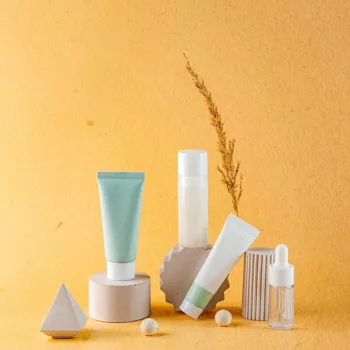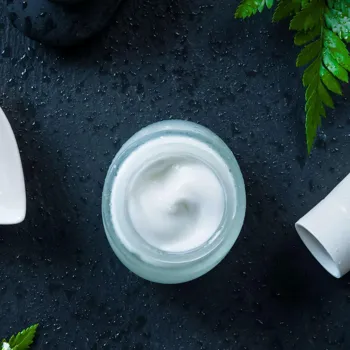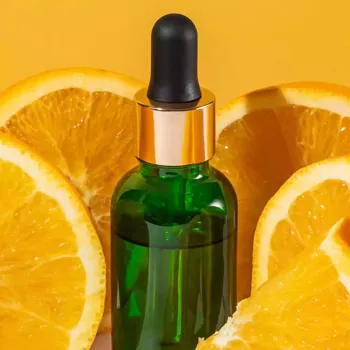Unravel the Science of Skincare Ingredients - Dive deep into how products work on your skin, empowering your choices
For ages, Indians have been drawn to beauty and skincare. We see grandma's haldi and besan
face packs getting passed to millennial daughters. But nowadays, the market is overflowing with creams, serums, and lotions, all promising radiant, youthful skin.

Ever wondered what really goes on beneath the surface when you slather on your favorite product? It's not just magic; it's science! Understanding how ingredients interact with your skin is key to making informed choices and achieving that healthy glow.
The basic understanding of ingredients will also give you power during shopping.
Skin's layers epidermis and dermis crucial for skincare
The skin, our body's largest organ, is a complex barrier. Its main job is to protect us from the outside world – pollution, UV rays, and harmful microbes. It's made up of several layers, the most important for skincare being the epidermis (the outer layer) and the dermis (the layer beneath).
The epidermis acts like a shield, constantly shedding old cells and replacing them with new ones. The dermis contains collagen and elastin, proteins that give skin its firmness and elasticity.
Many skincare ingredients work by targeting these layers, either by penetrating them or by stimulating processes within them. Therefore, understanding the ingredients that directly address the epidermis and dermis will add value to skin.
Hydration and key ingredients for healthy skin explained
Let's start with hydration, the cornerstone of healthy skin. Ingredients like hyaluronic acid are humectants, meaning they attract moisture from the air and draw it into the skin. Glycerin is another common humectant that helps to lock in moisture.

Then there are emollients like shea butter and cocoa butter, which soften and smooth the skin by filling in the gaps between skin cells. Occlusives, such as beeswax and mineral oil, create a protective barrier on the skin's surface, preventing water loss.
A simple moisturizer uses a combination of all these ingredients. The right balance of hydration will help skin from drying and cracking.
Retinoids, antioxidants, peptides, and vitamin C combat aging signs
Now, let's talk about tackling fine lines and wrinkles. Retinoids, derivatives of vitamin A, are powerful ingredients that stimulate collagen production and accelerate cell turnover. They can help to reduce the appearance of wrinkles, fade dark spots, and improve skin texture.
Antioxidants, like vitamin C and vitamin E, protect the skin from free radical damage caused by pollution and UV rays. Free radicals can break down collagen and elastin, leading to premature aging. Peptides are short chains of amino acids that act as building blocks for proteins like collagen.
Applying peptides can help to signal the skin to produce more collagen, resulting in firmer, more youthful-looking skin. Regular intake of Vitamin C is extremely important for delaying ageing process.
Ingredients like vitamin C, kojic acid, and arbutin can fade dark spots
Addressing hyperpigmentation, or dark spots, requires a different approach. Ingredients like vitamin C, kojic acid, and arbutin work by inhibiting the production of melanin, the pigment that gives skin its color. They can help to fade existing dark spots and prevent new ones from forming.

Niacinamide, a form of vitamin B3, is another versatile ingredient that can brighten the skin and reduce the appearance of pores. It also has anti-inflammatory properties, making it suitable for sensitive skin.
These ingredients, when used with sunscreen, will help reduce the hyperpigmentation and also tackle the tanning.
Ingredients for acne-prone skin: salicylic acid, benzoyl peroxide, tea tree oil
Finally, let's discuss ingredients for acne-prone skin. Salicylic acid is a beta hydroxy acid (BHA) that exfoliates the skin and unclogs pores. It can help to reduce blackheads, whiteheads, and inflammation. Benzoyl peroxide is an antiseptic that kills acne-causing bacteria.
Tea tree oil is a natural antibacterial and anti-inflammatory agent that can help to soothe irritated skin and reduce acne breakouts. It's always best to start with a low concentration of these ingredients and gradually increase it as tolerated to avoid irritation.
Remember to consult a dermatologist for severe acne problems.
Understanding skincare ingredients empowers informed choices
The world of skincare ingredients can seem overwhelming, but understanding the basic science behind them empowers you to make informed choices.
AI Generated Content. Glance/InMobi shall have no liability for the content











